Associated Press
Uneasy calm grips Ukraine as West prepares winter aid
Jamey Keaten – November 29, 2022
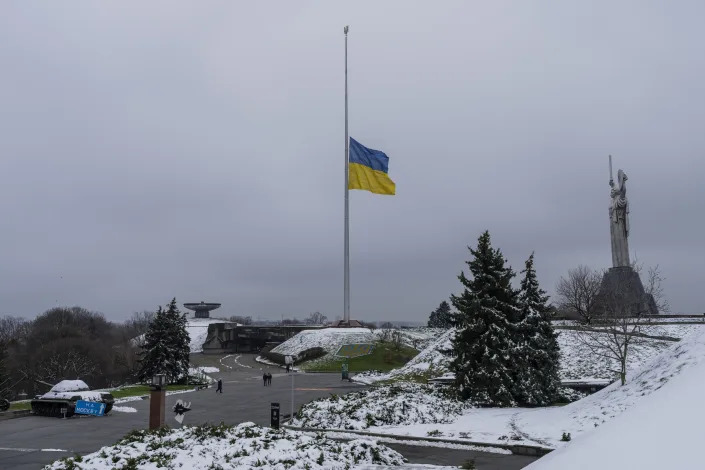
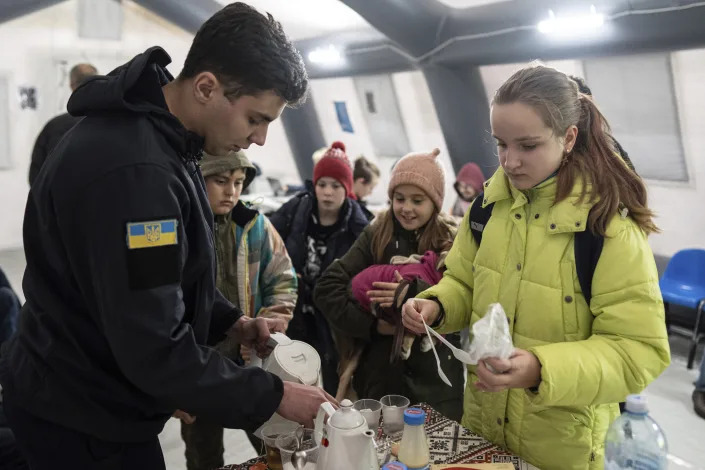
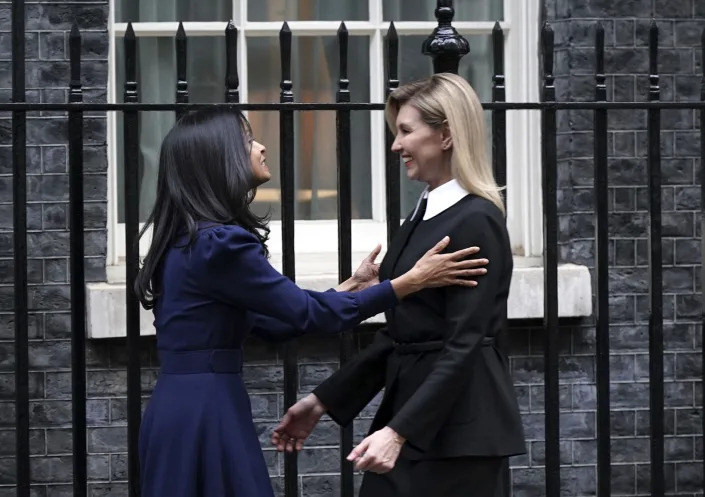
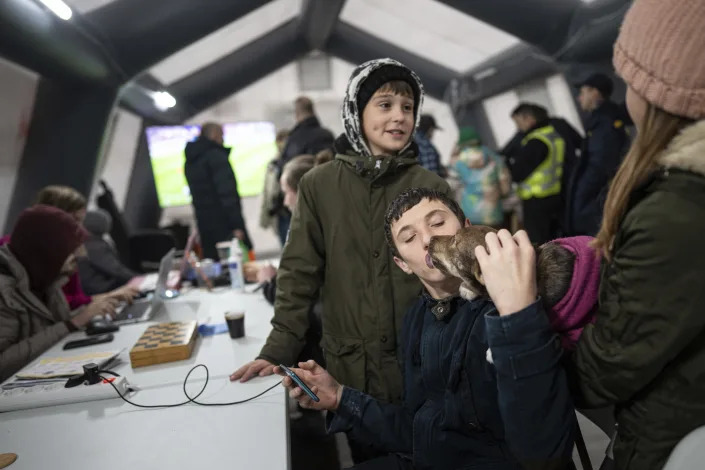

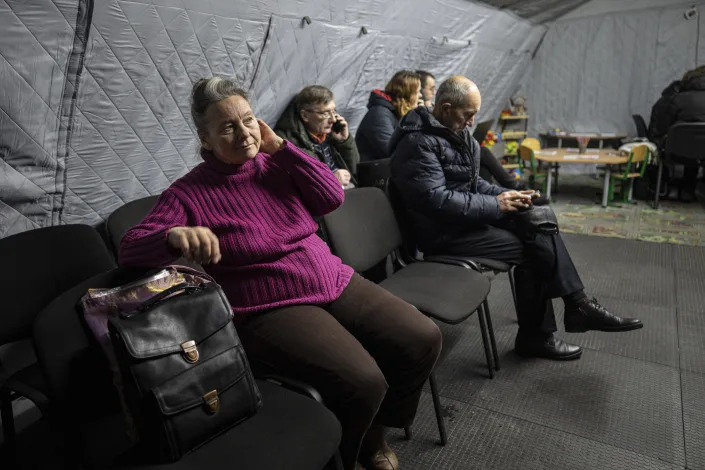

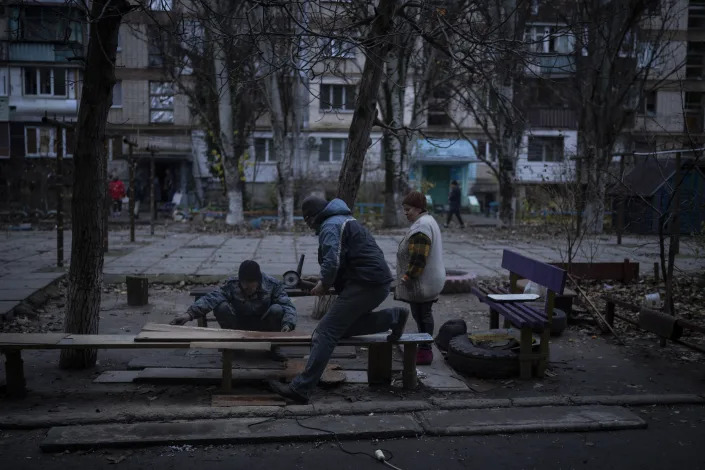
KYIV, Ukraine (AP) — An uneasy calm hung over Kyiv on Tuesday as residents of the Ukrainian capital did what they could to prepare for anticipated Russian missile attacks aiming to take out more energy infrastructure as winter sets in.
To ease that burden, NATO allies made plans to boost provisions of blankets, generators and other basic necessities to ensure Ukraine’s 43 million people can maintain their resolve in the 10th month of fighting against Russia’s invasion.
Ukraine’s first lady implored the West to show the same kind of steadfastness that Ukrainians had shown against Russian President Vladimir Putin’s military campaign.
“Ukrainians are very tired of this war, but we have no choice in the matter,” Olena Zelenska, the wife of President Volodymyr Zelenskyy, said in a BBC interview during a visit to Britain.
“We do hope that the approaching season of Christmas doesn’t make you forget about our tragedy and get used to our suffering,” she said.
A two-day meeting of NATO foreign ministers in Bucharest, Romania, was likely to see the 30-nation alliance make fresh pledges of nonlethal support to Ukraine: fuel, generators, medical supplies and winter equipment, on top of new military support.
U.S. Secretary of State Antony Blinken was to announce substantial U.S. aid for Ukraine’s energy grid, U.S. officials said. Targeted Russian strikes have battered Ukraine’s power infrastructure since early October in what Western officials have described as a Russian attempt campaign to weaponize the coming winter cold.
NATO Secretary-General Jens Stoltenberg said at the outset of the Bucharest meeting that Russia “is willing to use extreme brutality and leave Ukraine cold and dark this winter. So we must stay the course and help Ukraine prevail as a sovereign nation.”
About a third of Ukraine’s residents faced power supply disruptions, Ukraine’s state grid operator said, both because of increased demand due to colder temperatures and the emergency shutdown of power units at several plants since Monday morning.
“The overall deficit in the energy system is a consequence of seven waves of Russian missile attacks on the country’s energy infrastructure,” electricity system operator Ukrenergo said.
Kyiv saw continued interruptions to its electricity, heat and water supply, Mayor Vitali Klitschko said Tuesday, leading authorities to “consider the option of partial evacuation of the capital’s residents to the suburbs.”
Blinken reminded everyone it was not the first time that Russia had targeted helpless civilians in this war and insisted only strong support would impact the Kremlin.
Russia’s Black Sea fleet already bombarded Ukrainian cities and towns and bottled up vital grain shipments for the rest of the world in Ukrainian ports. Blinken said the U.S and NATO’s resulting military buildup in the strategic waterway would only intensify.
“We’re not going to be deterred,” he told reporters, in one of his more forceful statements of the day. “We’re going to be reinforcing NATO’s presence from the Black to the Baltic seas.”
Bogdan Aurescu, foreign minister of Romania, another Black Sea nation, said that Romania would be pushing the two-day NATO meeting to up the military presence further still.
The Ukrainian government was putting up defenses too — both for troops and for civilians. The government rolled out hundreds of help stations, christened Points of Invincibility, where residents facing the loss of power, heating and water can warm up, charge their phones, enjoy snacks and hot drinks, and even be entertained.
“I had no electricity for two days. Now there’s only some electricity, and no gas,” said Vanda Bronyslavavina, who took a breather inside one such help center in Kyiv’s Obolon neighborhood.
The 71-year-old lamented the uncertainty about whether Russia will simply resume its strikes after infrastructure gets fixed, a frustrating cycle of destruction and repair that has made wartime life even more uncertain.
Kyrylo Tymoshenko, the deputy head of the Ukrainian president’s office, said Russian forces overnight fired on seven regions in Ukraine’s south and east, employing missiles, drones and heavy artillery. At least one civilian was killed and two wounded.
Tymoshenko said that as of Tuesday, power had been restored to 24% of residents in the hard-hit southern city of Kherson.
On the battlefields in eastern Ukraine’s Russia-annexed Luhansk region, Ukrainian forces were continuing a slow advance, pushing toward Russian defense lines set up between two key cities, Gov. Serhiy Haidai said. He acknowledged in televised remarks that the onset of winter was compounding a “difficult” military situation.
The prospect of any peace remained remote. The Kremlin reaffirmed Tuesday that negotiations could only be possible if Ukraine meets Russian demands. Kremlin spokesman Dmitry Peskov told reporters that “it’s impossible to hold any talks now because the Ukrainian side strongly rejects them.”
He noted that “political will and readiness to discuss the Russian demands” are needed to conduct negotiations.
Russia has demanded that Ukraine recognize Crimea as part of Russia and acknowledge other Russian gains. It also has repeated its earlier demands for “demilitarization” and “denazification,” albeit with less vigor than in the past.
Ukraine wants Russia to withdraw from Crimea, which it annexed in 2014, and other Ukrainian territory, face prosecution for war crimes and rebuild Ukraine, as well as other demands.
Jill Lawless in London and Lorne Cook in Bucharest contributed to this report.
